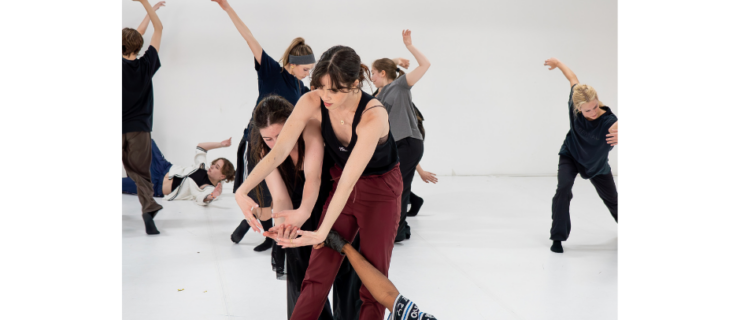Your Body: In Your Skin
When you have two shows a day, it’s not just a physical toll on your body—your skin can suffer as well. Heavy stage makeup and its removal can contribute to acne, dryness, skin irritation, and even premature aging.
Miami City Ballet soloist Amanda Weingarten has a careful skin care regimen, but she still has trouble with dry skin. It flares up when she has performances four to six times a week, requiring her to apply and remove heavy stage makeup for each show. “The theater lights often dry out my skin to the point where my face feels tight and flaky,” Weingarten says.
The challenge for many dancers is taking preventive measures when their skin still feels fine, says Dr. Joseph Newmark, a dermatologist and clinical assistant professor at Upstate Medical University in Syracuse, NY. “Once trouble starts, it’s harder to treat,” he notes.
While a lot of makeup choices and skin-care habits are learned through trial and error, here are several precautions that could help protect your skin:
Covering Acne
What’s good news about pimples as a performer? Most audience members sit too far away to see them if you cover them with a bit of extra concealer and regular stage makeup, says Lisa Zomer, a California makeup artist who has worked with dance companies in the Bay Area. But if you have an abrasion, Zomer recommends using liquid bandage on the affected area. Then apply your regular makeup on top of it, but with a sponge or puff. If you have a serious problem with acne—either on your face or your back—consult a dermatologist. It also helps to remove all makeup as soon as possible, says Newmark, and to shower after class or shows to remove extra oils and sweat generated by performing.
Allergic Reactions
Unfortunately, learning whether you are sensitive to certain makeup is enlightenment through experimentation. Most makeup allergies lead to rashes, and if that happens, you need to wash the makeup off and see a dermatologist as soon as possible. Your doctor can perform an upper-back patch test with various chemicals to isolate the one causing your reaction. Then you can look for makeup brands that omit the irritant.
Even if your makeup doesn’t cause a problem immediately, you want to check what’s in it. Some cosmetic products contain ingredients such as mineral oil, artificial pigments, fragrances, and parabens. Any or all of these can cause irritation over time. “Luckily there is a plethora of ‘green’ makeup lines,” Weingarten says. “Occasionally I may sacrifice quality for that absolute perfect hue of mauve, but most of the time I go green.”
Makeup Removal
How you take off makeup can make a difference in the effectiveness of your skin-care regimen. Leaving it on for any longer than necessary—or being careless in how you take it off—contributes to breakouts, irritation, or aging skin. “Remove it as soon as you are done with a show, but gently,” Newmark says. “Any time you rub or scrub, it’s going to damage the skin.”
Cleansing means removing everything, even your mascara. “My eyes get itchy sometimes if I don’t clean the makeup off them well enough,” says New York City flamenco dancer Rebeca Tomás. She also rinses with cold water in the morning to stimulate circulation to the skin and avoid drying it out. For eye makeup removers, Zomer recommends a water- or gel-based one with plant extracts because they tend to be soothing. She also suggests using eye cream because dancers are always tugging at their eyes, putting makeup on and taking it off.
Many dancers use baby wipes as a makeup remover, thinking because they have been formulated for infants, they will not dry out or abrade skin. Zomer cautions against the wipes. “Baby wipes have a lot of alcohol, and that has a drying effect on skin.”
Makeup-remover wipes, however, work well, especially those with aloe or glycerin. Also cleansers such as Cetaphil and Aquanil are hypoallergenic, fragrance-free, and free of oils. Zomer also recommends a creamy cleanser, such as Orlane B21 Oligo Vitalizing Cleanser or Naturopathica’s Sweet Lupine Cleansing Cream, because they are especially effective at dissolving makeup without stripping the skin.
Healthy Habits
Dancers always get warned about not drinking enough water, but few realize it has an impact on their skin as well. Glowing skin comes from sufficiently hydrating throughout the day.
Your skin reflects what you put in your body in other ways too, says Newmark. Cut down on greasy foods and stock up on fruits, vegetables, and whole grains that nourish skin with their rich vitamin content. Vitamin E, for instance, improves skin texture and can be found in nuts, seeds, and spinach. And last but not least, cut out the cigarettes. “They suck all of the oxygen out of your skin,” Zomer says. “I can tell a smoker at a glance, because their skin is gray and they get little lines.”
Hannah Maria Hayes is a New York writer with an MA in dance education.




